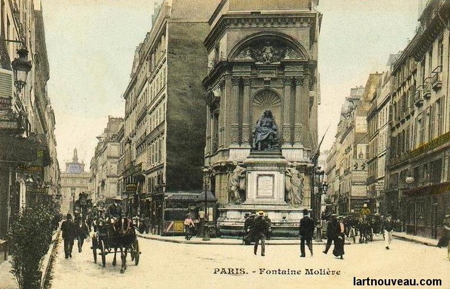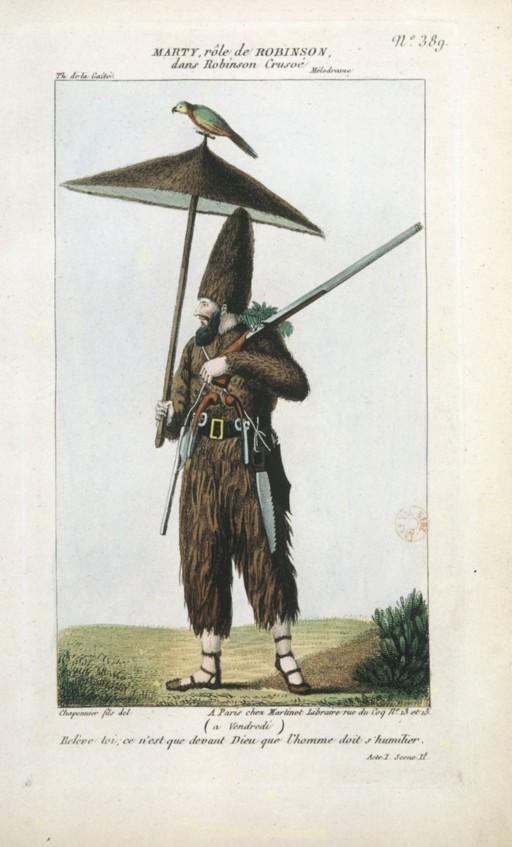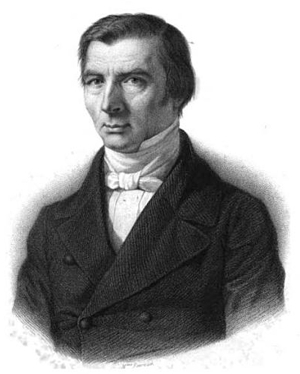Date: 14 April, 2015
“Literature IN Economics, and Economics AS Literature I: Bastiat’s use of Literature in Defense of Free Markets and his Rhetoric of Economic Liberty.”
A paper given at the Association of Private Enterprise Education International Conference (April 12-14, 2015), Cancún, Mexico. HTML and PDF.
The fountain dedicated to Molière on the rue de Richelieu, Paris where the publishing firm Guillaumin was located. They published all of Bastiat’s books.
Abstract: In this paper I will show how one economist used literature in creative and amusing ways to assist him in defending free trade and free markets from their intellectual and political opponents in France during the 1840s. The economic journalism which Frédéric Bastiat produced at this time is some of the best ever written and is still a model for economists today. His knowledge of both high and low French culture and literature was extensive, drawing upon the plays of Molière and the fables of La Fontaine at one end of the spectrum, as well as the political drinking songs and poems of Béranger at the other. These are all examples of Bastiat’s use of “literature in economics”.




